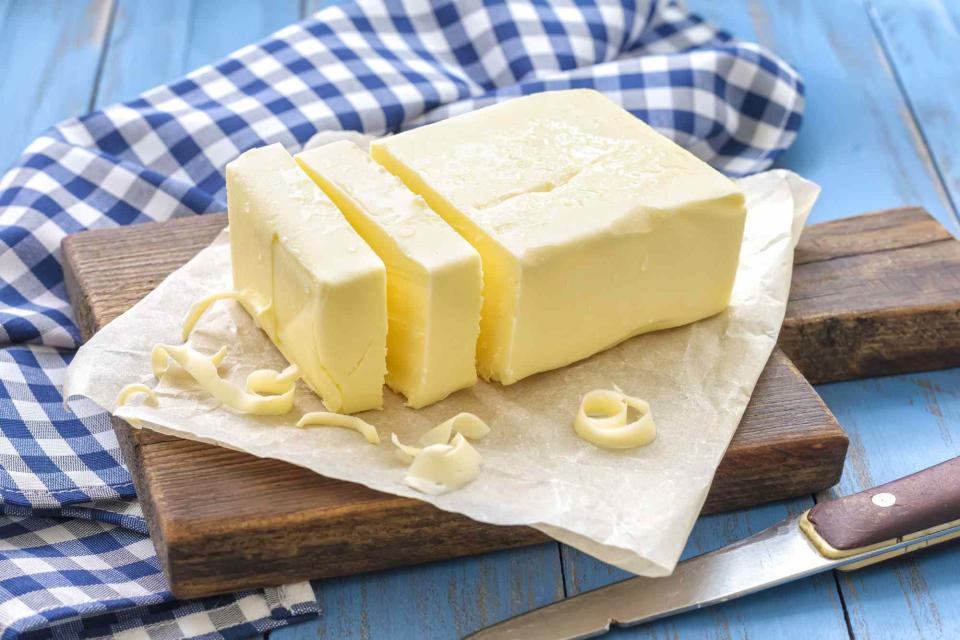Salted Or Unsalted? When To Use The Right Butter
Everyone says that unsalted butter is best, but then why does salted butter exist?

Fact checked by Emily PetersonMedically reviewed by Jerlyn Jones, MS, MPA, RDN, LD, CLT
Chefs, cookbook authors, Instagram baking influencers, even our Test Kitchen Professionals are always espousing the necessity of unsalted butter. It gives you more control over the flavor profile, they say. You don't want to add extra salt, they preach. But then why does salted butter even exist, you wonder to yourself in the dairy aisle.
We get it. That's why we're here to break down this butter bifurcation.
It all comes down to what you're cooking. If you're sauteing vegetables, toasting bread, basting pork chops, scrambling eggs, or making a sauce, chances are you can use salted butter and that added sodium will also add some flavor enhancement to whatever you're making. Another fun fact about salted butter: it typically lasts three to four months longer than unsalted butter because the salt acts as a preservative.
Related: Can You Freeze Butter?
But if you're baking, unsalted butter is the best way to go since added salt can alter the chemistry of your recipes, clash with more delicate flavors, or crash into sweetness. But if you only have salted butter on hand, don't completely give up. If you're making something like cookies or a piecrust, chances are it won't wildly affect the taste, but if you're worried you can always reduce the amount of salt the recipe calls for a little bit to compensate.
In either case, make sure whatever butter you're using is fresh. Sometimes salt can mask an off taste in butter, but will come out in the finished product.
For more Southern Living news, make sure to sign up for our newsletter!
Read the original article on Southern Living.

